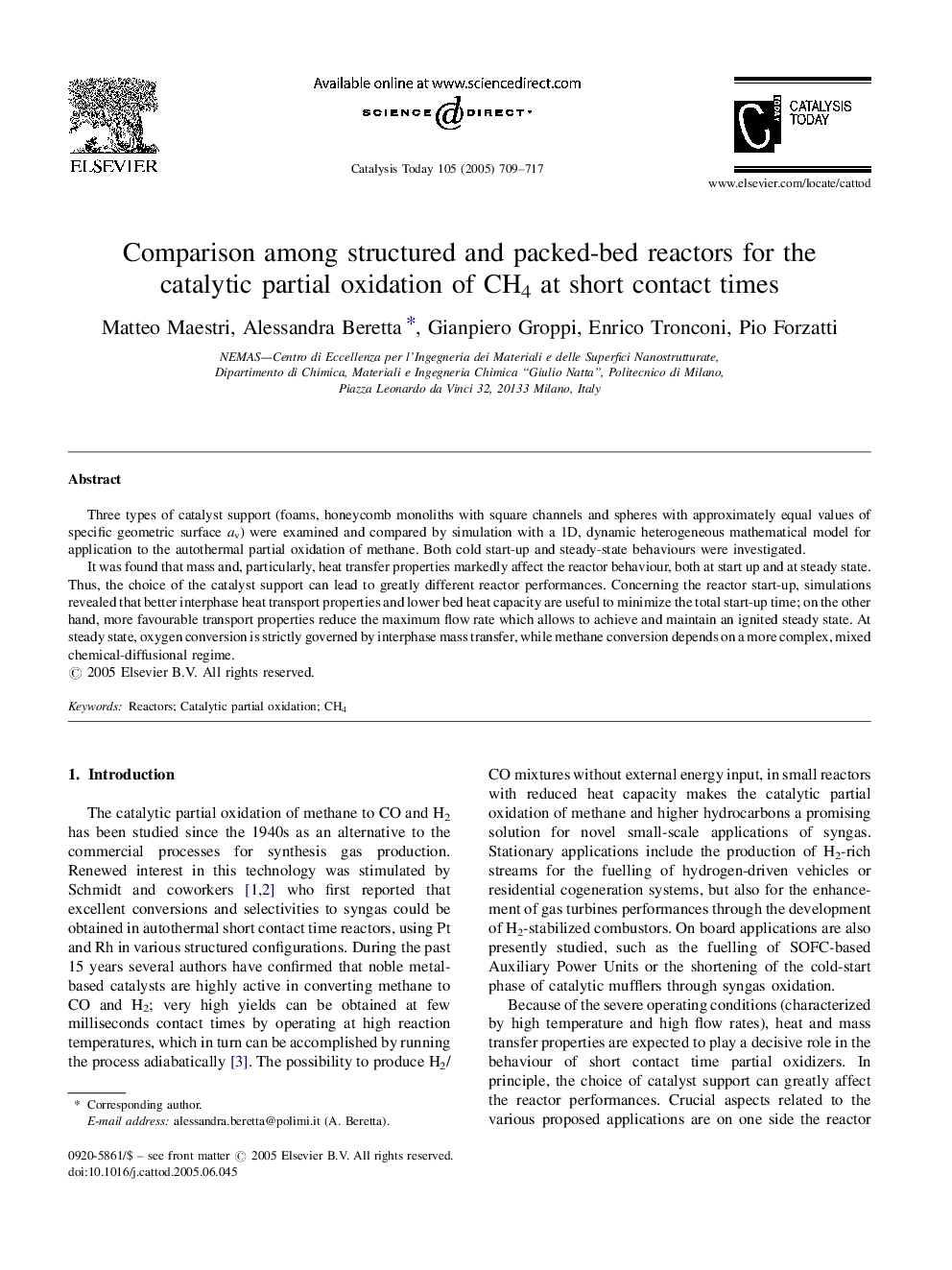| Article ID | Journal | Published Year | Pages | File Type |
|---|---|---|---|---|
| 9610376 | Catalysis Today | 2005 | 9 Pages |
Abstract
It was found that mass and, particularly, heat transfer properties markedly affect the reactor behaviour, both at start up and at steady state. Thus, the choice of the catalyst support can lead to greatly different reactor performances. Concerning the reactor start-up, simulations revealed that better interphase heat transport properties and lower bed heat capacity are useful to minimize the total start-up time; on the other hand, more favourable transport properties reduce the maximum flow rate which allows to achieve and maintain an ignited steady state. At steady state, oxygen conversion is strictly governed by interphase mass transfer, while methane conversion depends on a more complex, mixed chemical-diffusional regime.
Related Topics
Physical Sciences and Engineering
Chemical Engineering
Catalysis
Authors
Matteo Maestri, Alessandra Beretta, Gianpiero Groppi, Enrico Tronconi, Pio Forzatti,
